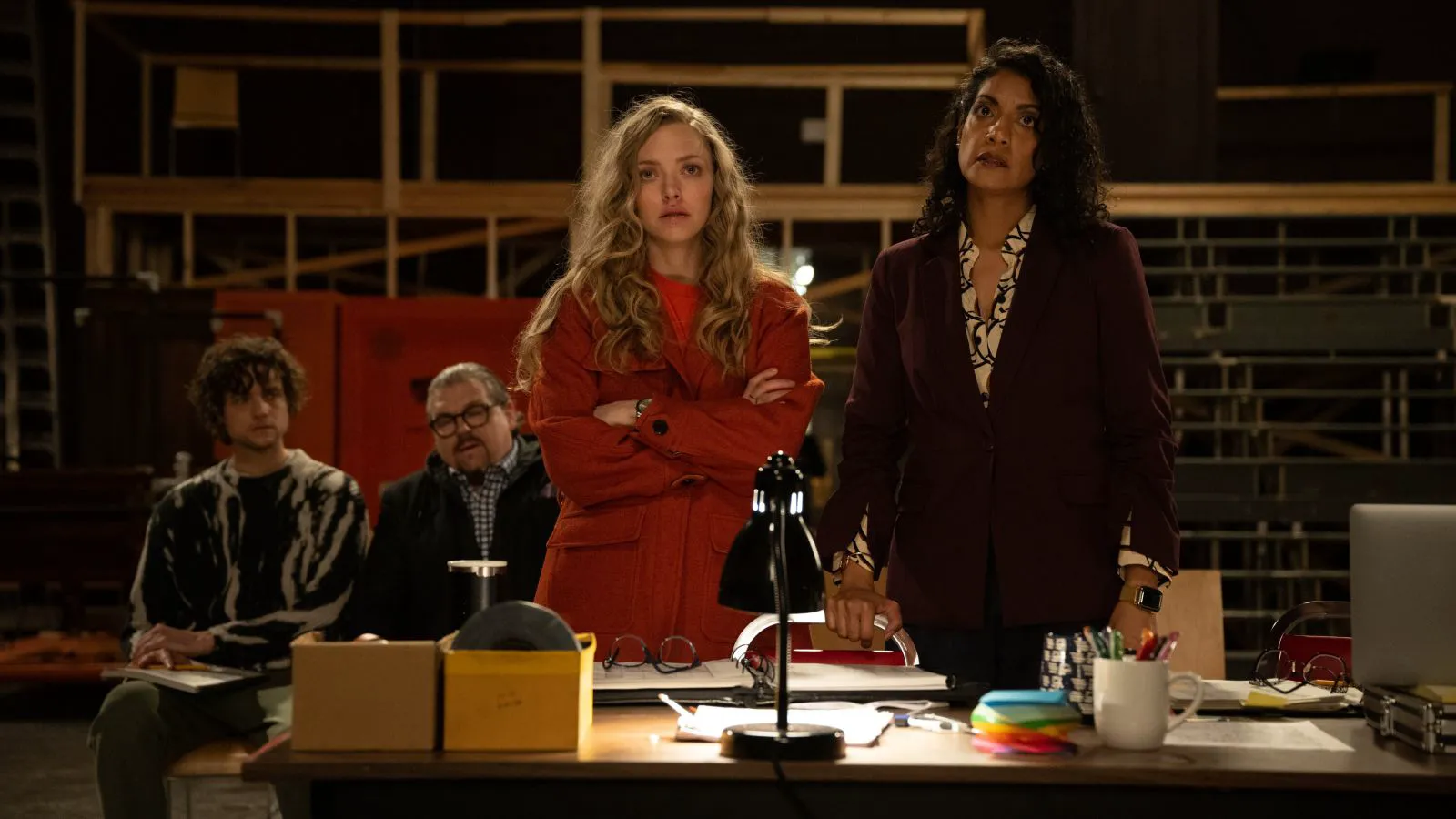Atom Egoyan’s “Seven Veils”: A Delayed Arrival and a Feminist Reinterpretation
Atom Egoyan’s “Seven Veils” experienced a surprisingly delayed journey to Russian screens. Premiering in late September 2023 at the Toronto International Film Festival, a traditional launchpad for awards season contenders, the film ultimately bypassed the Oscar race. It settled for a special screening at the 74th Berlin International Film Festival, which concluded in mid-February 2024. “Seven Veils” now arrives in Russian cinemas during a quiet March period, coinciding with mixed critical reception to Egoyan’s latest work. This challenging release history serves as a cautionary sign for general audiences. However, for admirers of Atom Egoyan, known for his dramas exploring complex sexual themes (“Chloe,” “The Sweet Hereafter”), “Seven Veils” offers an intriguing experience. This adaptation of the biblical myth of Salome stands apart from much of his previous work.

Amanda Seyfried as Jeanine in “Seven Veils”
The Plot Unveiled
The film centers on Jeanine (Amanda Seyfried), a relatively unknown theater director offered the opportunity to stage a modern version of Richard Strauss’s renowned opera, “Salome.” Years prior, Jeanine’s former teacher and lover, Charles, reinterpreted “Salome,” achieving international acclaim. Following his death, Charles bequeathed the rights to the production to Jeanine. Unbeknownst to many, that production was inspired by traumatic events from Jeanine’s childhood. As she delves into the play, Jeanine confronts the ghost of her abusive father, grapples with her ongoing divorce from her husband (Mark O’Brien), and desperately attempts to revise Charles’s script, which deliberately omitted crucial details of her youth.

Amanda Seyfried as Jeanine in “Seven Veils”
A Controversial Source Material
Richard Strauss’s original opera, based on Oscar Wilde’s 1891 novel of the same name, was considered scandalous for its time. The story of the ambivalent relationship between Salome and John the Baptist faced censorship and was banned from European theaters until the early 20th century. The tale of obsessive love and bloody revenge has inspired numerous filmmakers, from Pier Paolo Pasolini (“The Gospel According to St. Matthew”) to Pedro Almodóvar, Ken Russell, and even Al Pacino. Egoyan, who has consistently shown a penchant for love dramas with complex sexual undertones, first staged “Salome” in 1996, albeit on the stage. “Seven Veils” represents the director’s cautious attempt to reinterpret Strauss’s controversial opera through the lens of fourth-wave feminism, particularly the #MeToo movement that emerged amidst accusations against producer Harvey Weinstein.

Amanda Seyfried as Jeanine in “Seven Veils”
A Feminist Lens
In Egoyan’s reimagining, Salome is not a seductress but a victim of a cruel, male-dominated world. Her perceived depravity is an illusion born from a sick, patriarchal mindset, and her passionate dance of the seven veils is a silent plea for help. Egoyan applies a feminist perspective to a story often interpreted in a one-dimensional manner. While the treacherous motives of the biblical Salome are generally accepted, given John the Baptist’s rejection of her advances, Jeanine’s experience is different. For her, depravity is an imposed, traumatic experience from her childhood. Strauss’s play becomes a means to address painful themes through art, to heal, and perhaps to find freedom. Utilizing the concept of the “death of the author,” Jeanine subtly shifts the focus of “Salome” from tragic love to bloody revenge, though the personal story behind the production remains evident only to her.
A Disjointed Narrative
In his signature style, Egoyan immerses the viewer in a complex, non-linear narrative structure, leading them through the countless corridors of the protagonist’s memories. The visual storytelling of “Seven Veils” is deliberately cold and detached, unlikely to captivate. While some shots are genuinely mesmerizing, Egoyan cautiously avoids sharp edges, an ill-advised tactic when dealing with the subject of sexualized violence. Within the framework of a feminist revenge thriller, which “Seven Veils” desperately tries to be, Egoyan positions himself too timidly. Nevertheless, the film itself is a clear indication of his artistic growth.